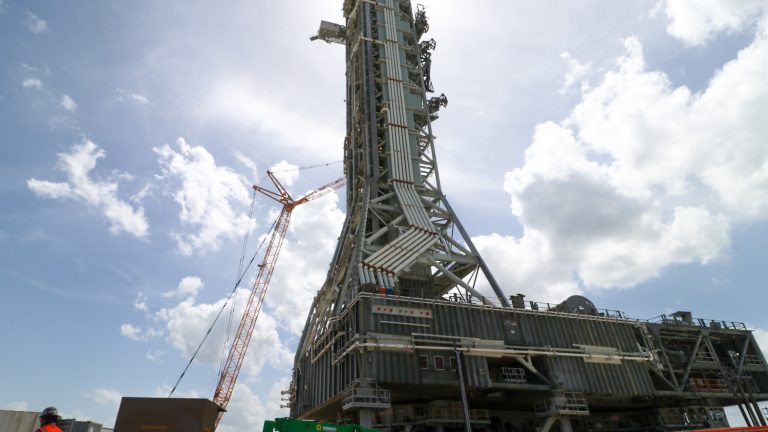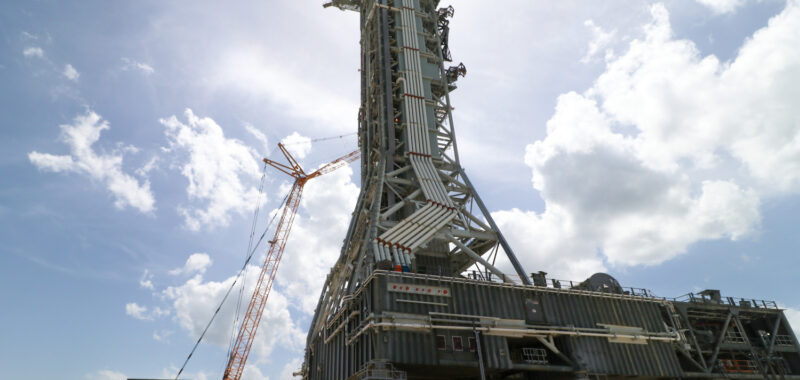
Don’t book your tickets for the launch of NASA’s Artemis II mission next year just yet.
We have had reason to doubt the official September 2025 launch date for the mission, the first crewed flight into deep space in more than five decades, for a while now. This is principally because NASA is continuing to mull the implications of damage to the Orion spacecraft’s heat shield from the Artemis I mission nearly two years ago.
However, it turns out that there are now other problems with holding to this date as well.
No schedule margin
A new report from the US Government Accountability Office found that NASA’s Exploration Ground Systems program—this is, essentially, the office at Kennedy Space Center in Florida responsible for building ground infrastructure to support the Space Launch System rocket and Orion—is in danger of missing its schedule for Artemis II.
During this flight a crew of four astronauts, commanded by NASA’s Reid Wiseman, will launch inside Orion on a 10-day mission out to the Moon and back. The spacecraft will follow a free-return trajectory, which is important, because if there is a significant problem with Orion spacecraft’s propulsion system, the trajectory of the vehicle will still carry it back to Earth. At their closest approach, the crew will come within about 6,500 miles (10,400 km) of the surface of the far side of the Moon.
The new report, published Thursday, finds that the Exploration Ground Systems program had several months of schedule margin in its work toward a September 2025 launch date at the beginning of the year. But now, the program has allocated all of that margin to technical issues experienced during work on the rocket’s mobile launcher and pad testing.
“Earlier in 2024, the program was reserving that time for technical issues that may arise during testing of the integrated SLS and Orion vehicle or if weather interferes with planned activities, among other things,” the report states. “Officials said it is likely that issues will arise because this is the first time testing many of these systems. Given the lack of margin, if further issues arise during testing or integration, there will likely be delays to the September 2025 Artemis II launch date.”

